Critical thinking might be the only thing that matters in an automated world
What's the value of a college education in the age of AI? And why are we gutting institutions still capable of teaching something AI can’t replicate?
I’m more and more convinced that a person’s ability to succeed and thrive in this complicated world is disproportionately dependent on sheer luck in two parts: when, where, and who you were born to, and the political and economic climate of when a young person first enters the workforce.
You can easily fall into an existential spiral when you start thinking about the arbitrariness of life when framed this way. We have no control over either, after all. Social mobility is still possible—I grew up in a family that’s testament to that, but it feels like systems are being re-scaffolded to keep certain groups down.
There’s been a lot of noise in the media on how this is the toughest job market for college graduates in years. When looking at data on unemployment numbers, there is some speculation that college degrees might be less valuable than they used to be. I will always be a proponent of the value of a college education, but as I pay the absurd price of tuition twice a year to two different schools, it’s hard to ignore the loud chorus of opinions on whether or not an expensive degree is worth the return on investment.
Return on investment. When did we even start thinking about college in this way? I know this may be completely idealistic considering how painful it is to see that tuition bill, but college should be a time of intellectual growth and an exploration of ideas. Instead, we’ve pushed emphasis on job readiness, skills-based learning, and direct pathways to employment. This plays a large part in why critical thinking is so lacking.
Some academics are lamenting how even small liberal arts colleges are turning pre-professional, but it’s understandable given how grossly expensive college has become. At the risk of contradicting myself, I’ve encouraged my kids to major in what interests them, but with the goal of gaining skills that are employable. The problem is, I don’t even know what “employable” means anymore. Tech keeps shifting entire industries with accelerated speed while knocking out the bottom rungs of the corporate ladder. I worry that we’re just training students to be future cogs in a wheel; it seems like a direct path to early career burnout.
While I won’t have a graduate for another year, I’ve been thinking back to when I started this newsletter a few months after we dropped our oldest child off to college. I don’t know how the math adds up, but it feels like it was just yesterday that I was moping around the apartment feeling a little lost when my first-born left home. If childhood goes fast, then the college years go by even faster. I’m already bracing for a move back home, coupled with a long, hard job search in her major, if she can even find one.
This is where luck and timing come in. So much has changed in the last few years since she entered college. Careers and fields with high demand just a few years ago seem suddenly precarious now. Few could have predicted how far AI would advance with such alarming speed, or that we’d find ourselves governed by an administration that is hostile to scientific research and agnostic to environmental disasters. All while sabotaging the economy by launching nonsense tariffs.
Sorry, kid, but you might have to pivot and find an entirely different path because the people in power don’t believe in research and eliminated all those federal government science jobs. Oh, by the way—robots will replace blue collar workers and AI might be taking your white collar job anyway. If only you graduated a few years ago…
I don’t even know what to say to my kids anymore. Nobody is promised a job when they earn a college degree, but it used to be a lot easier to secure an entry level position with little experience and find your place in the world.
College used to open doors, but it guarantees nothing now. Tech used to create jobs, but it now replaces them. How did we get here from just a generation or two ago?
Earlier this year, I wrote an essay on how horrendous the job market is. Over the weekend, Dario Amodei, CEO of of Anthropic (creator of Claude), dropped a “white collar bloodbath” bomb when he predicted that AI will destroy half of all entry level white collar jobs and spike unemployment up to 20% in the next five years. He did so as a warning to tech companies and the government to take responsibility for what’s coming for us down the road. Public figures, like Obama, are sounding the alarms and The New York Times just published its own story on how the AI job apocalypse is already here.
Ok, so you might argue that Amodei is a tech CEO who needs to hype up his products and this is just doomsday talk. Perhaps. But remember when Andrew Yang made universal basic income his main platform in his failed 2020 presidential run because he predicted that tech was coming for our jobs within the next twelve years? I guess somebody did try to warn us. Maybe the need for UBI is closer than we imagined and we’ll all need some kind of safety net from the machines.
I haven’t written much about AI because it honestly scares me as much as it fascinates me—and I’m not referring to the AI slop that we’re seeing on our social media feeds. AI may streamline tasks and remap systems, but it also steals our imagination. That’s one thing. But what makes this shift different from past technological disruptions, is that AI isn’t just automating physical labor or basic clerical tasks like machines and early computers did. It’s targeting jobs that require cognitive thinking.
Yes, jobs will evolve as they always have and new industries will emerge. But we’re currently in a painful transition period where technological advances are outpacing its ability to create new jobs while eliminating the need for workers in tech, finance, and law, particularly entry level ones. We’ve lived through recessions before, but young adults like my kids are entering into an uncharted labor market.
So how do we navigate this? Nobody knows. Not even the Linkedin influencers who are urging young people to take a second look at blue collar jobs or get fluent with AI while building personal brands. But influencers aren’t immune because AI has come for their jobs too. They’re already here, amassing thousands of followers and churning out content faster and cheaper than any human.
I remember years ago during the pandemic, watching a demo of a tool that designed a simple UI app interface with just a few lines of text. In a zoom meeting full of designers, it blew our collective minds even as we vocalized out loud that it might put us out of a job one day.
The other day, I played around with a creative AI tool from a startup founded by a student from my graduate school program at NYU who dropped out when he recently got funded. “Create at the speed of thought,” the tagline promises. Again, I’m not exactly blown away by the end product (the output is going to get better though), but I’m fascinated by the process in which the tool gets from prompt to final output and the collaborative team possibilities of working with AI in a canvas interface. Shaping the future of creative work is a lofty mission, but there will always be someone pushing innovation.
I watch some of my peers join or start their own AI native agencies and I’m glad that I left the industry when I did. I don’t know if I have yet another pivotal adoption of new tech in me. Maybe this newsletter is my pivot and I’ll just go on to being a curator, an artist, a thinker, so I don’t really have any skin in the game. Where I do get a sinking feeling of dread is when I think about the future for my kids.
I don’t know how to advise them anymore, especially my youngest who is still deciding on a major. There’s a line of thought that kids should just study what they want because nobody knows what degree will be valuable when they graduate. Workers may not even need to learn new skills in the future if agentic AI can analyze context and perform complex, multi-step tasks. We’ll just ask it to create an entire website or optimize supply chain logistics in real time.
The irony of it all is that we pushed kids into STEM for years for better job outcomes, but it might be time for the pendulum to swing back. Colleges need to educate students on interdisciplinary critical thinking, emotional intelligence, writing skills, ethical reasoning, and just how to be human. Essentially, back to a true liberal arts education.
AI will most definitely evolve into AGI (artificial general intelligence) at some point. We just don’t know when. But when it does eventually possess human-level capabilities of reasoning, autonomous learning, and nuanced problem solving, that is the future that scares me. It’s the future of mass societal upheaval.
It may require us to rethink entirely what work even is. Maybe we won’t have to work much at all and humans will have more time to create art if AI can do the menial and repetitive tasks for us. Utopia or dystopian? Maybe both. But it will only work if we have true social safety nets. That feels like the biggest challenge of all.
Not to end on a down note, here’s Superfine at The Met
The kid and I have a yearly summer tradition: a visit to The Met to see the Costume Institute’s annual exhibit, followed by a classic New York slice of pizza and a cafe date for coffee and pastries.
This year’s exhibit, Superfine: Tailoring Black Style, is a cultural examination of Black menswear and Black identity through fashion and the concept of Dandyism. Read more about the exhibit here: The Self-Fashioning of the Black Dandy (Hyperallergic).
Some of my favorites:
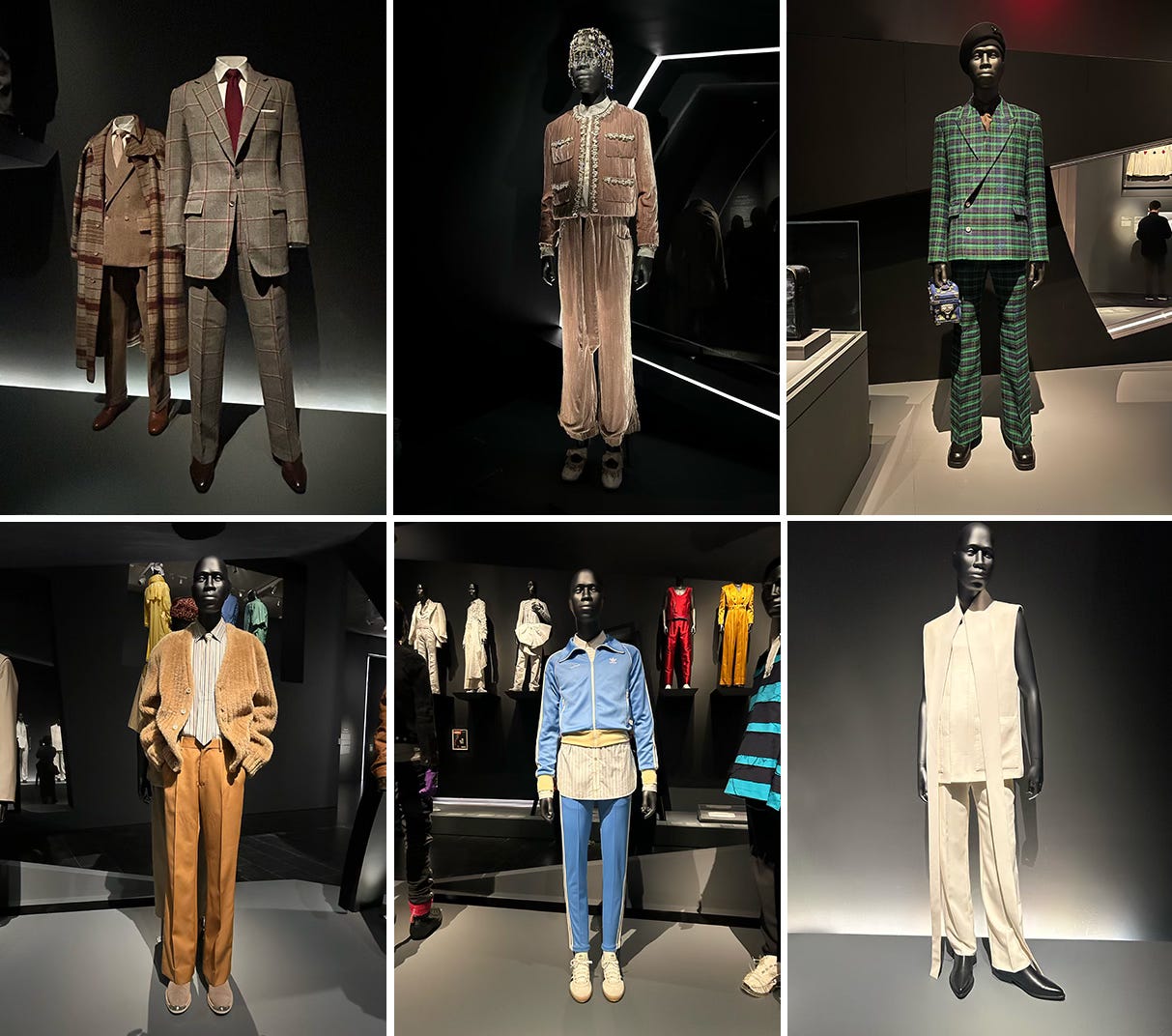
Weekly links
To read:
ChatGPT Is Everywhere — Why Aren't We Talking About Its Environmental Costs? (Teen Vogue)
Yes, why aren’t we talking about it. Especially when tech companies are rushing to invest in nuclear energy?Toward a Maternal Gaze We’ve heard the warnings: children will drain your time, your money, and your focus. But what might a writer gain from motherhood? (Pioneerworks)
Kate Shannon Jenkins explores how motherhood is transformative for artistic expression. Referring to the “quantity of mundane junk that fills the mind” that’s required of parenting, “it’s also possible that this kind of attention to detail trains the mind toward a heroic capacity for observation.”Psychology study sheds light on why some moments seem to fly by (PsyPost)
Why does it seem like time moves faster as we get older? The connections between nostalgia, satisfaction, personal growth, and the perception of time.Unhappy Hour - People used to relish getting sloshed with their colleagues after work. What happened? (Slate)
Everything about the workplace after Covid changed, including happy hour.Party Till the Break of 10 P.M. - Earlybirds, a roving dance party that ends as most nightclubs are opening, caters to women who have things to do in the morning — and need dancing more than ever. (NY Times)
When disco naps don’t cut it and you have to be up at 7 A.M.Universal basic income as a new social contract for the age of AI (LSE)
So…how would we fund UBI?
An exhibition I wish I can see:
Through Fairy Lights and Butterflies, Chiharu Shiota Tethers Presence and Absence (This is Colossal)
Chiharu Shiota is one of my favorite artists and she’s having a major solo exhibit in Beijing with a new site specific installation. The threads in Shiota’s work represent time currents, the residue of memory, and the intricate webs that bound us to life and death.
To make and eat:
Spaghetti alla Nerano (Platings & Pairings)
That famous zucchini spaghetti that Stanley Tucci loves. Yes, it is good.





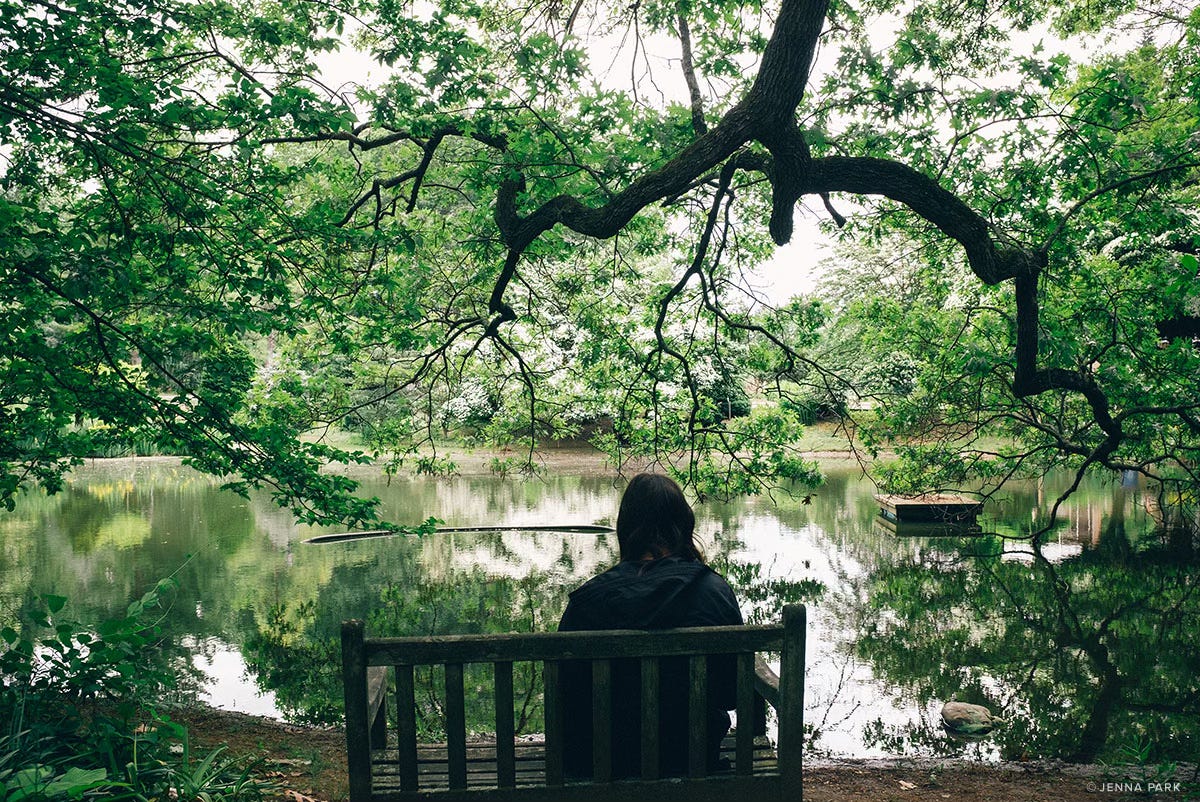
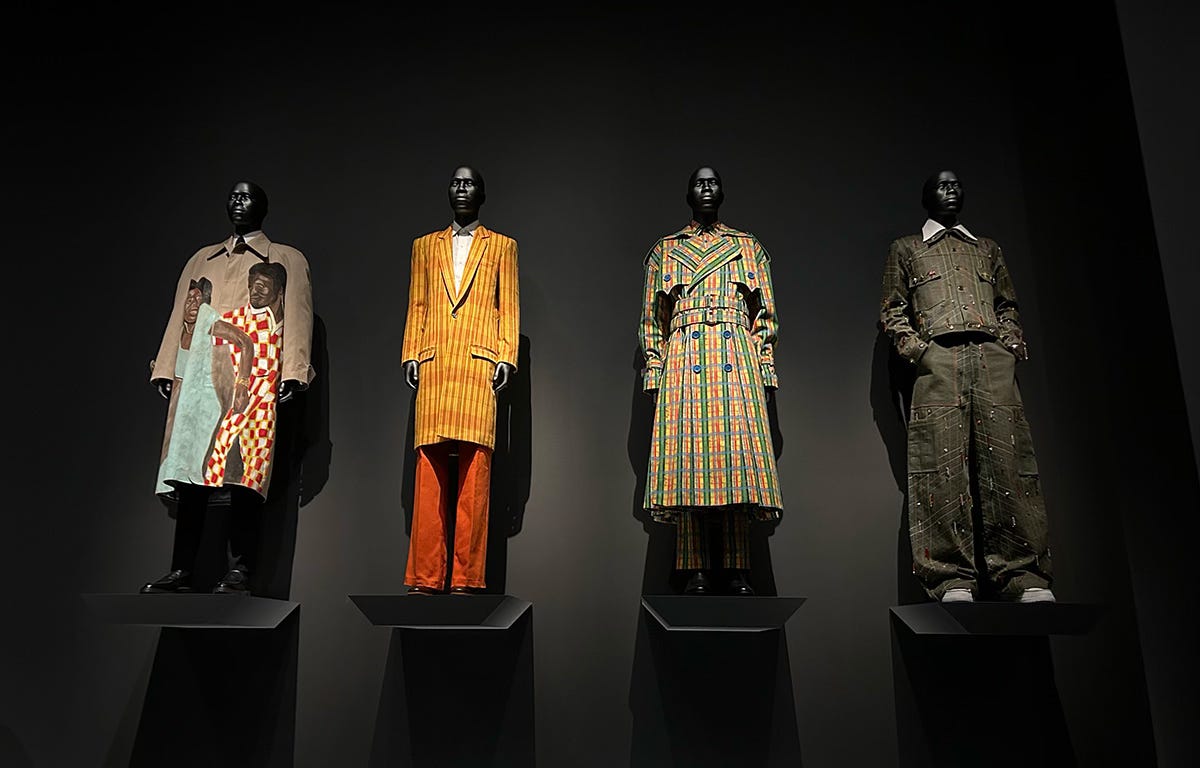
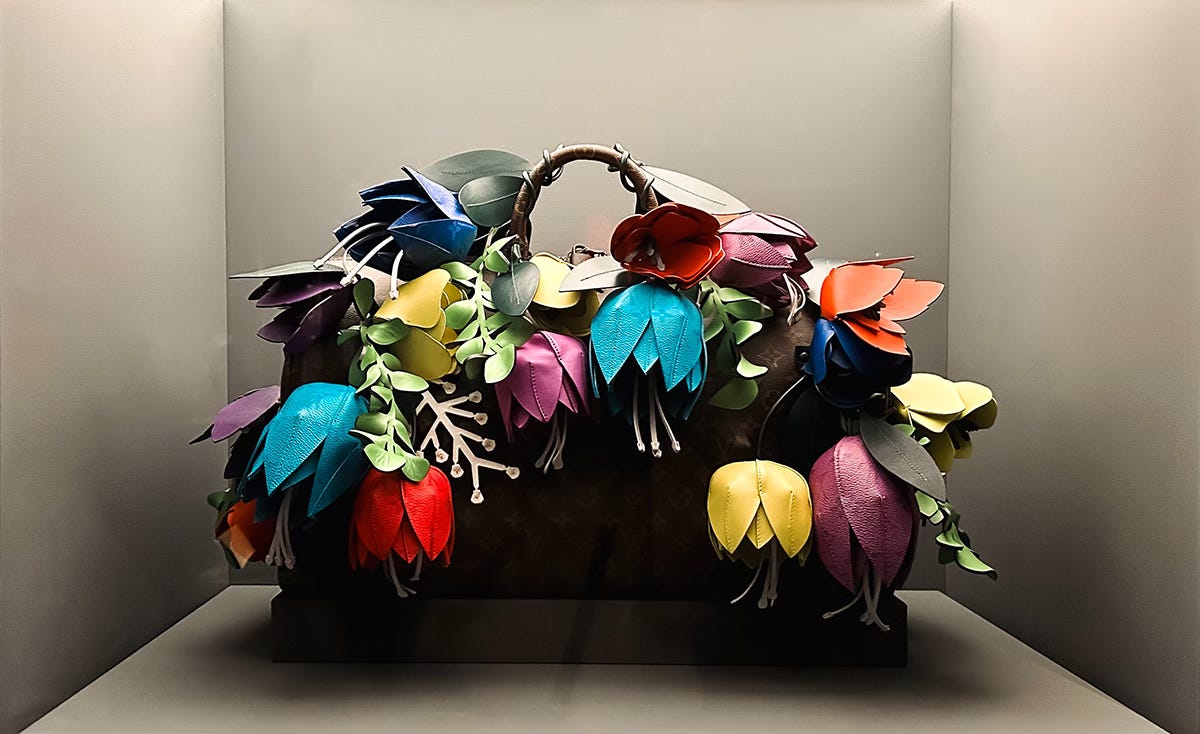

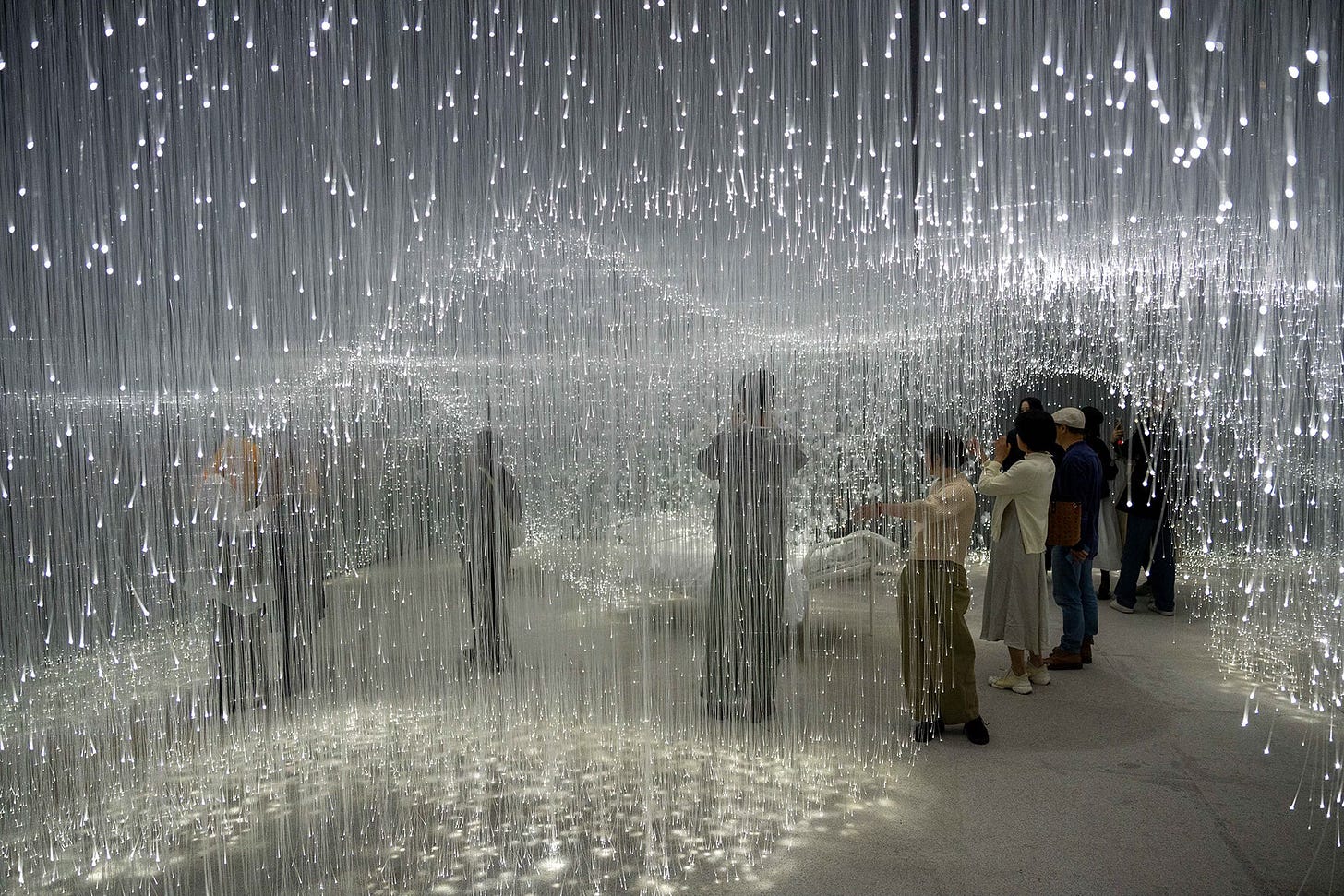

The environmental impact of AI is what truly astounds me. In an ideal world, the true cost of AI should be disclosed up front (just as the true cost of... everything, in terms of energy output, should be). The idea of half the country being jobless while AI centers burn through the last remaining fossil fuels brings us into dystopian sci fi future much faster than I had imagined. Thanks for writing a thought provoking and... prescient? oof, essay
So many thoughts. My eldest was in college during lockdown so there were no internships and no job openings for a couple years as companies tried to figure out how to get people back in the office or work remotely. Meanwhile new grads were coming in annually. Currently, almost all of his friends still do not have stable employment despite having degrees from top schools. Thankfully my youngest is graduating and received a job offer but the differences between the two are worrying. I feel like those college pandemic kids are going to be a lost generation. And now we have this current economic situation.
I so agree with you on critical thinking. We need that badly. Humans have a very difficult time understanding statistics. They often see statements as binary and often overestimate potential impact without considering the "bell curve". College also gives kids great exposure to those who are different than their upbringing, giving them a better understanding of humanity and our world. I suspect this is why this administration wants to kill our world renowned university systems.